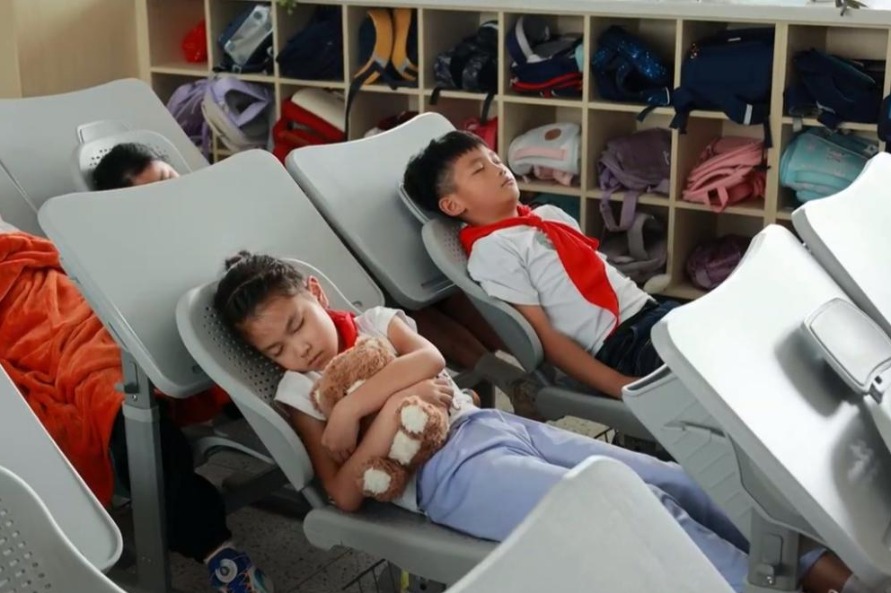Forum applauds use, oversight of AI in medicine


Regulators seek harmony in standards for development of high-tech tools
Exploration and cooperation are needed to establish adequate regulations for the use of artificial intelligence and other new and innovative technologies in the medical industry, according to regulatory authorities, who emphasized how essential they are in advancing global health.
Xu Jinghe, deputy commissioner of the National Medical Products Administration, said that the development of medical devices that rely on AI, biomaterials and 3D printing has accelerated in recent years.
Regulatory authorities across the world are experimenting with new tools and methods, rather than sticking to conventional frameworks, in order to ensure the safety and efficacy of innovative medical devices while guiding the development of the industry, he said.
Xu made the comments during the 27th annual meeting of the Global Harmonization Working Party, an international organization comprising regulatory bodies and industry representatives, which is committed to stepping up the harmonization of medical device regulatory requirements. Xu was elected the organization's chairman in February.
Over 600 participants from 25 countries and regions attended the meeting, which was held in Shanghai from Nov 27 to 30.
Quan Tran, head of the working party's capacity building team, said that new technologies are playing crucial roles in a wide range of medical fields. For example, robots are used to help conduct minimally invasive surgeries, AI is used in diagnostic imaging and 3D printing helps make orthopedic and dental implants.
"As drug regulators, we are obliged to get a hold of these latest developments, make quick responses and deal with them in an innovative manner," she said, emphasizing that it is important to strike a balance between guaranteeing the safety and efficacy of medical devices and fueling innovation.
"It is also important to promote international cooperation, share good practices and try our best to prevent repetitive work," she added.
Jia Jianxiong, an official with the National Medical Products Administration's Center for Medical Device Evaluation, said that China released an accelerated market approval channel for innovative medical devices in 2014 and updated the protocol in 2018.
As of October, the center had received about 2,450 applications and 234 products had been granted market approval through the channel, Jia said.
Yang Pengfei, another official at the center, said that China's top drug regulator has published or is reviewing 21 guidelines concerning digital health services and solutions, 12 of which are related to AI-powered medical devices and are aimed at providing guidance for the industry when applying for market registration in the country.
Between January 2020 and May this year, the administration approved 56 Class 3 deep learning-assisted medical software applications, which can carry out medical functions without any actual hardware, Yang said. Class 3 is the category for the most complicated medical devices in a three-tier system.
The number of such applications approved last year was 2.6 times more than that of 2020. Twenty-five more such applications are expected to gain market approval by the end of this year, he added.
Li Li, commissioner of the National Medical Products Administration, said it will continue to facilitate the development and market registration of innovative medical devices.
The administration will deeply engage in working party activities, enhance global communication and cooperation in drug regulation, and make greater contributions to building a global community of health for all, he said.
Xu, the deputy commissioner, said the working party covers more than 50 percent of the global population. It has formulated and launched 48 technical guidelines as part of efforts to step up the harmonization of medical device regulation around the world.
More efforts aimed at developing regular guidelines and creating mechanisms to facilitate close cooperation are underway, he added.
- Global Public Security Cooperation Forum to be held in Lianyungang
- Huangyan Island National Nature Reserve gets official go-ahead
- A capable assistant in classroom -- Chinese educators embrace AI
- China rolls out homegrown 9-valent HPV vaccine
- New coal-to-gas pipeline project begins in Xinjiang
- Horgos Port exports a record 214,000 vehicles in first 7 months of this year





































